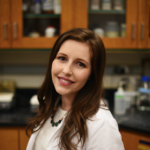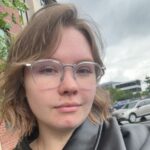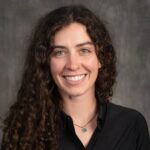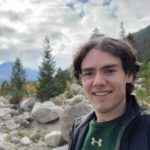The Kelp lab focuses on science communication, with research in the field of science communication education as well as in health communication about infectious diseases. With both groups of projects, we are focused on inclusive science communication and promoting effective and equitable collaborations between groups. The Kelp lab is also a part of the Rockies and High Plains Vector-borne Diseases Center, a regional training and evaluation center funded by the CDC.
research project
Investigation of Best Practices for Communication of Scientific Uncertainty
In collaboration with communication researchers and science education researchers, the Kelp lab is analyzing how scientists and STEM students communicate about scientific uncertainty and how diverse audiences respond, especially during emerging infectious diseases.
research project
Development of science communication educational activities for diverse students
The Kelp lab is creating educational activities for students at K-12 and higher education levels to learn how to communicate about complex socioscientific issues, with a focus on inclusive science communication. This includes collaborations with instructors across campus, CSU Extension, WiSCI Network, and Poudre School District, and funding from NSF.
view project
research project
Community-engaged education to address misinformation around pandemic disease
In collaboration with Ashley Anderson in Journalism & Media Communication and other groups, the Kelp lab is engaging with diverse students and community members to understand and address the spread of scientific misinformation.
research project
Improving Health Communication regarding Vector-Borne Diseases
The Kelp lab is collaborating with diverse vector-borne disease researchers to analyze and improve best practices in health communication regarding vector-borne diseases like West Nile Virus.
Publications
Inclusive Science Communication Training for first-year STEM students promotes their identity and self-efficacy as scientists and science communicators
Alderfer S, McMillan R, Murphy K and Kelp N (2023) Inclusive Science Communication training for first-year STEM students promotes their identity and selfefficacy as scientists and science communicators. Frontiers in Education, 8:1173661. doi: 10.3389/feduc.2023.1173661
Scientists’ deficit perception of the public impedes their behavioral intentions to correct misinformation
Choi S, Anderson AA, Cagle S, Long M, Kelp N (2023) Scientists’ deficit perception of the public impedes their behavioral intentions to correct misinformation. PLoS ONE 18(8): e0287870.
Analysis of inclusivity of science communication training being provided to scientists and STEM students.
Vickery R, Murphy K, McMillan R, Alderfer S, Donkoh J, Kelp NC. (2023). CBE-Life Sciences Education, 22(1). DOI: 10.1187/cbe.22-03-0040
The Social Ecology of Health Beliefs and Misinformation Framework: Examining the impact of misinformation on vaccine uptake through individual and sociological factors.
Enyinnaya J, Anderson A, Kelp NC, Long M, Duncan CG. (2024). The Social Ecology of Health Beliefs and Misinformation Framework: Examining the Impact of Misinformation on Vaccine Uptake Through Individual and Sociological Factors. Vaccine, 42(3):455-463. DOI: 10.1016/j.vaccine.2024.01.001
To vaccinate or not? The role played by uncertainty communication on public understanding and behavior regarding COVID-19.
Kelp NC, Witt J, Sivakumar G. (2021). Science Communication. December 2021. DOI: 10.1177/10755470211063628
more publications
People
Nicole Kelp, Ph.D.
Lab Principal Investigator (PI)
Assistant Professor
Chair of the Medical Science Content Directors, CU School of Medicine
Trevor Hale
Undergraduate Research Assistant
Members of the Kelp Lab, Spring 2023
Delaney Worthington’s presentation at SABER West on January 14, 2024
news and updates
view all
April 16, 2024
2024 Multicultural Undergraduate Research Art and Leadership Symposium (MURALS) Winners Announced
Kelp lab’s Hannah Gilliard wins first place in the Social Sciences/Humanities category for her presentation, “Measuring and Improving Undergraduate STEM Students’ Inclusive Science Communication Skills”.
April 3, 2024
Communicating about vaccines: Impacts of uncertainty, misinformation, and relationships in health communication and decision-making
Nicole Kelp, CSU MIP assistant professor, gave a presentation at the UCDavis’ Center for Healthcare Policy and Research Seminar series regarding the impacts of misinformation about vaccines.
November 3, 2023
Why is there so much science misinformation?
MIP assistant professor, Nicole Kelp, describes her work surrounding science communication and how it can be used to combat the spread of misinformation.








